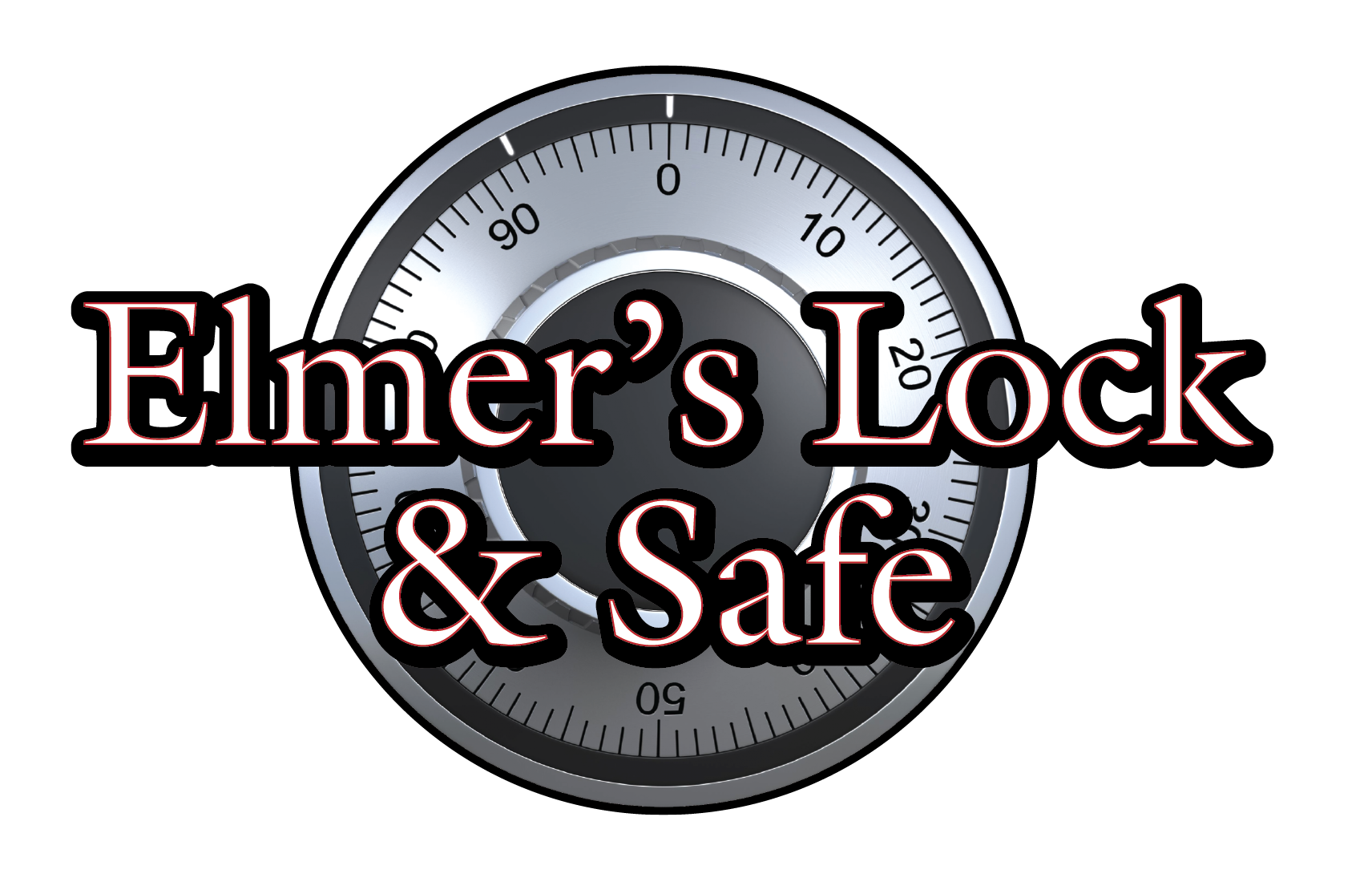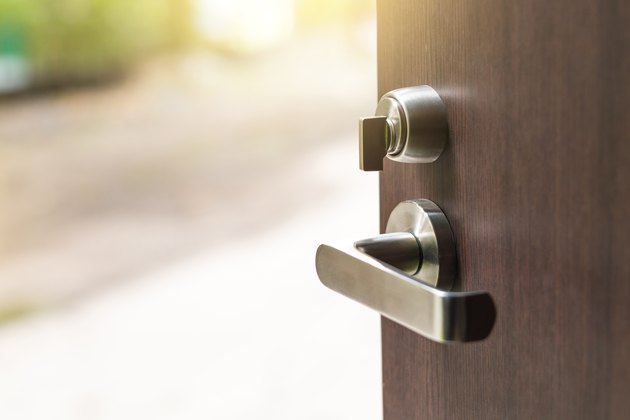Reasons For A Stuck Door Latch
Whether the door latch is stuck open or closed, you need a way to get your door functioning correctly. Here are possible issues you may be experiencing along with potential fixes that you can seek to do yourself or with the help of a professional. These are not the only possible reasons a door latch is stuck, but they are fairly common.
1. Misaligned Strike Plate
The Issue– With the door latch stuck only when you are attempting to open a closed door, but not when the door is open, you might have a misaligned strike plate. This might have something to do with moisture expanding the wood of your door, or an issue with the foundation of your home not being secure.
What is Happening- On a physical level, when you try to retract or extend the latch into the bored hole of the strike plate; the metal latch is not falling into the hole perfectly. This requires excessive force to have the latch retract against the friction of metal sliding against metal.
Solutions- If the problem is the wood expansion you can look into redoing the finish of your door to keep effects from influencing your door shape. On the other hand, if the issue is your foundation, then you may want to look into repair, some form of rescuing the foundation, or even just to remove the tree whose roots are pushing up from under the house.
2. Jammed Latch
The Issue– There is no real variation between how the latch moves when it is pressed in, and when the handle is turned (both when the door is open and when it is shut). This has to do with a build-up of material within the components, which allow the latch to extend and retract as a result of hindered spring tensioning.
What is Happening- As a result of moisture, rust can accumulate inside the lock as well as on the latch bolt, which creates unnecessary friction as the metal bits of the lock attempt to slide past one another or get out of the way of other moving parts. This can impede the movement of springs as well.
Solutions– In these instances it is always best to disassemble the lock and do a bit of cleaning. Letting the components sit fully submerged in vinegar of about 5% acidity will do the job of separating the gunk from your metal. Rust removal is very common in older homes where you may see many mortise locks. It is something that affects all locks given enough time, but after about a day of sitting in the vinegar the locks can be wiped down and polished, which will make them look brand new. Besides just wiping down the finish, you may also need to scrub out certain nooks and crannies with a small brush.
How you polish the lock will determine how quickly the lock will rust again. This is why it is a good idea to use something like car wax to seal all of the small imperfections in the metal that are susceptible to future rust. Before applying any polish, take time to dry the lock components. Then once the polish has fully coated the lock, be sure to remove the excess polish so that it does not cause the door latch to stick.
3. Broken Internal Mechanism
The Issue – When part of the lock has broken, many things could be wrong. The easiest sign that there is something broken in the lock is when the door latch is stuck only when you attempt to move the handle (both when the door is open and closed), but you can press on the latch and it will slide in and out the way it is intended.
What is Happening- The spindle could be broken; meaning the actuating the handle is not sending any information to the latch. This is a result of the chain of interacting parts has broken down. There could also be something wrong with the spindle hole, keyed cylinder, or something that has broken in the lock.
Solutions– The easiest way to fix a broken lock is by changing locks. This may also be a cheaper solution. You can check with your local locksmith shop to find replacement parts. The prices of certain replacement components can vary, and this type of replacement also requires you to know what you need to replace. This could also be the perfect opportunity to upgrade your security. You can invest in higher-quality lock products that not only provide more security but will also need less maintenance, and not break down as often.
If you have a door latch stuck open or a door latch stuck closed, you can now identify the problem and take the proper steps to get them back into working order.
If you have any other lock or safe issues, we would love to help you. Please contact us at (402) 676-8973 or email us at ELMERSLOCKANDSAFE@GMAIL.COM.

